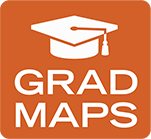| |
Feb 02, 2026
|
|
|
|
|
2022-23 Catalog ARCHIVED CATALOG: Content may no longer be accurate.
Early Childhood (AAS)
|
|
- Program Prerequisite: Before beginning this program, a student must see the department advisor in McKay Education Building Room 248 (801-626-6411).
- Grade Requirements: A cumulative GPA of 2.50 and a grade of B- or better in required major courses. Students will receive the final grade they have earned in each course. If a grade in a major course does not meet the minimum requirement for graduation, the student may retake the course once. In special circumstances, by the judgment of the department chair, the student may petition to the Early Childhood/Early Childhood Education Committee, as appropriate, to graduate with the lower grade.
- Credit Hour Requirements: A total of 63 credit hours is required for graduation; 28 of these are required within the major.
- Program Code: 5000AAS
- CIPC: 190706
Advisement
Students must follow the Department of Child and Family Studies Advisement procedures. Contact the department advisor located in the McKay Education Building, Room 248 (801-626-6411). (Also refer to the Department Advisor Referral List.)
 Use Grad MAPs to plan your degree Use Grad MAPs to plan your degree
Admission Requirements
Completed the program application. Meet with the department and faculty advisor. Declare your program of study (see Program of Study (Major/Minor) Declaration ). Sign a Program of Study Contract with the Department of Child and Family Studies. Contact the department advisor, 801-626-6411.
General Education
Refer to Degree Requirements for Associate of Applied Science requirements. CHF 1500 will fulfill both a major and general education requirement and is prerequisite to most Child and Family Studies Department major courses.
Program Learning Outcomes
- 1. Child Development and Learning in Context
- 1a. Understanding of the development period of early childhood from birth through age 8 across developmental domains.
- 1b. Understand each child as an individual with unique developmental variations.
- 1c. Understand that children learn and develop within relationships and within multiple contexts, including families, cultures, languages, communities, and society.
- 1d. Use this multidimensional knowledge to make evidence-based decisions about how to carry out their responsibilities.
- 2. Family-Teacher Partnerships and Community Connections.
- 2a. Know about, understand, and value the diversity of families.
- 2b. Collaborate as partners in families in young children’s development and learning through respectful, reciprocal relationships and engagement.
- 2c. Use community resources to support young children’s learning and development and to support families, and build partnerships between early learning settings, schools, and community organizations and agencies.
- 3. Child Obersavation, Documentation, and Assessment.
- 3a. Understand that assessments (formal and informal, formative and summative) are conducted to make informed choices about instruction and for planning in early learning settings.
- 3b. Use screening and assessment tools in ways that are ethically grounded and developmentally, culturally, and linguistically appropriate in order to document developmental progress and promote positive outcomes for each child.
- 3c. Build assessment partnerships with families and professional colleagues.
- 4. Developmentally, Culturally, and Linguistically Appropriate Teaching Practices.
- 4a. Understand and demonstrate positive, carying, supportive relationships and interactions as the foundation of early childhood educators’ work with young children.
- 4b. Understand use teaching skills that are responsive to the learning trajectories of young children and to the needs of each child, recognizing that differenciating instruction, incorporating play as a core teaching practice, and supporting the development of executive function skills are critical for young children.
- 4c. Use of a broad repertoire of developmentally appopriate, culturally and linguistically relevant, anti-bias, evidence-based teaching skills and strategies that reflect the principles of universal design for learning.
- 5. Integration of Academic Content in the Early Childhood Curriculum
- 5a. Understand content knowledge - the central concepts, methods and tools of inquiry, and structure - and resources for the academic disciplines.
- 5b. Understand pedagogical content knowledge - how young children learn in each discipline - and how to use the teacher knowledge and practices described in standards 1 through 4 to support young children’s learning in each content area.
- 6. Professionalism as an Early Childhood Educator
- 6a. Identify and involve themselves with the early childhood field and serve as informed advocates for young children, families, and the profession.
- 6b. Know about and uphold ethical and other early childhood professional guidelines.
- 6c. Use professional communication skills, including technology-mediated strateiges, to effectively support young children’s learning and development and to work with families and colleagues.
- 6d. Engage in continuous, collaborative learning to inform practice.
- 6e. Develop and sustain the habit of reflective and intentional practice in their daily work with young children and as members of the early childhood profession.
|
Major Course Requirements for AAS Degree
Child & Family Studies Courses Required (minimum of 31 credit hours)
Electives (minimum 13 credit hours)
Select 13 additional credit hours with the approval of an advisor. Seek additional depth in Child and Family Studies and also select courses from across campus to enhance teaching competency in the areas of Art, Science, Literature, Music, Health & First Aid, etc. Advisors will suggest specific appropriate courses. Students should work closely with an advisor if they are planning to go on for a future Early Childhood baccalaureate or a teaching certificate. |
|
|